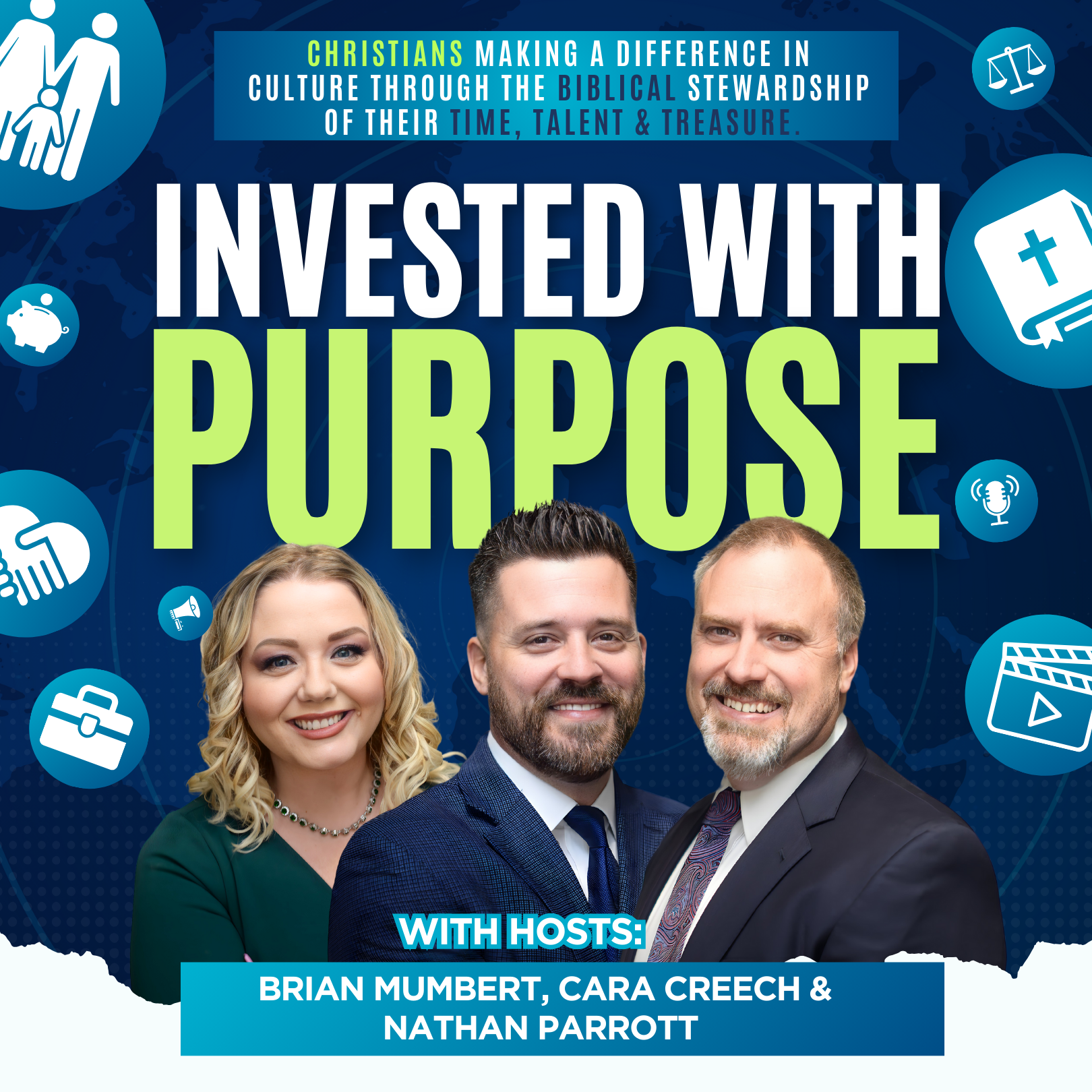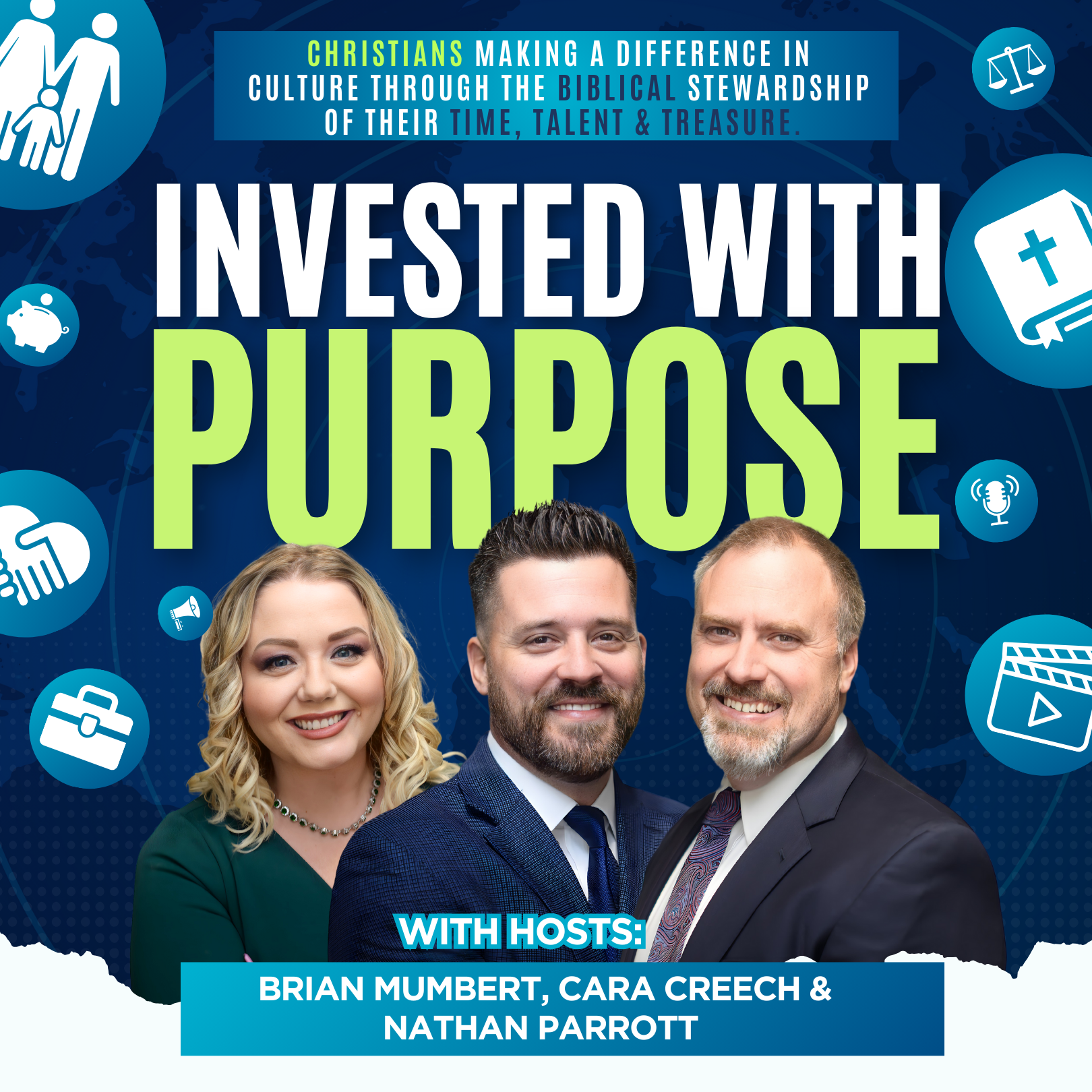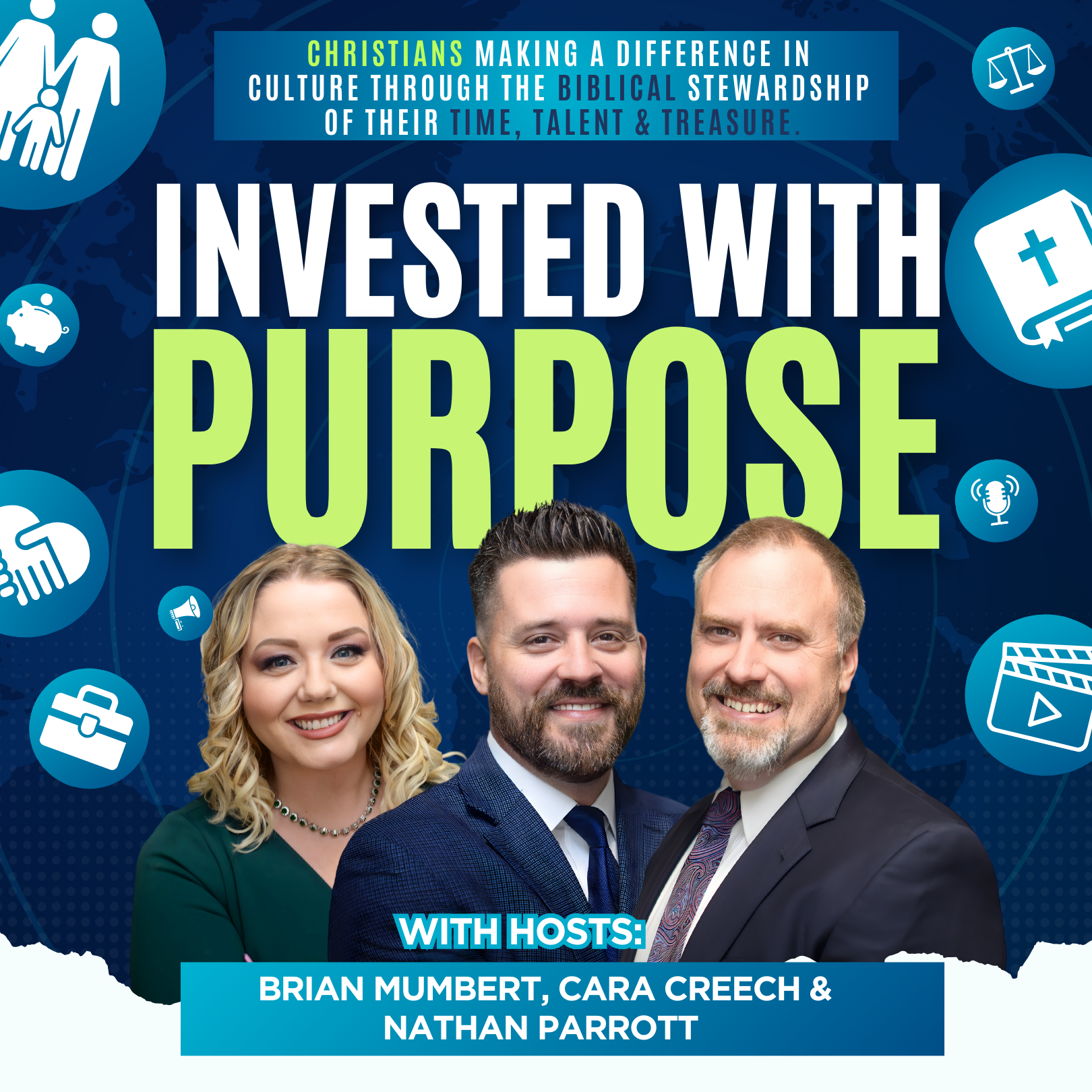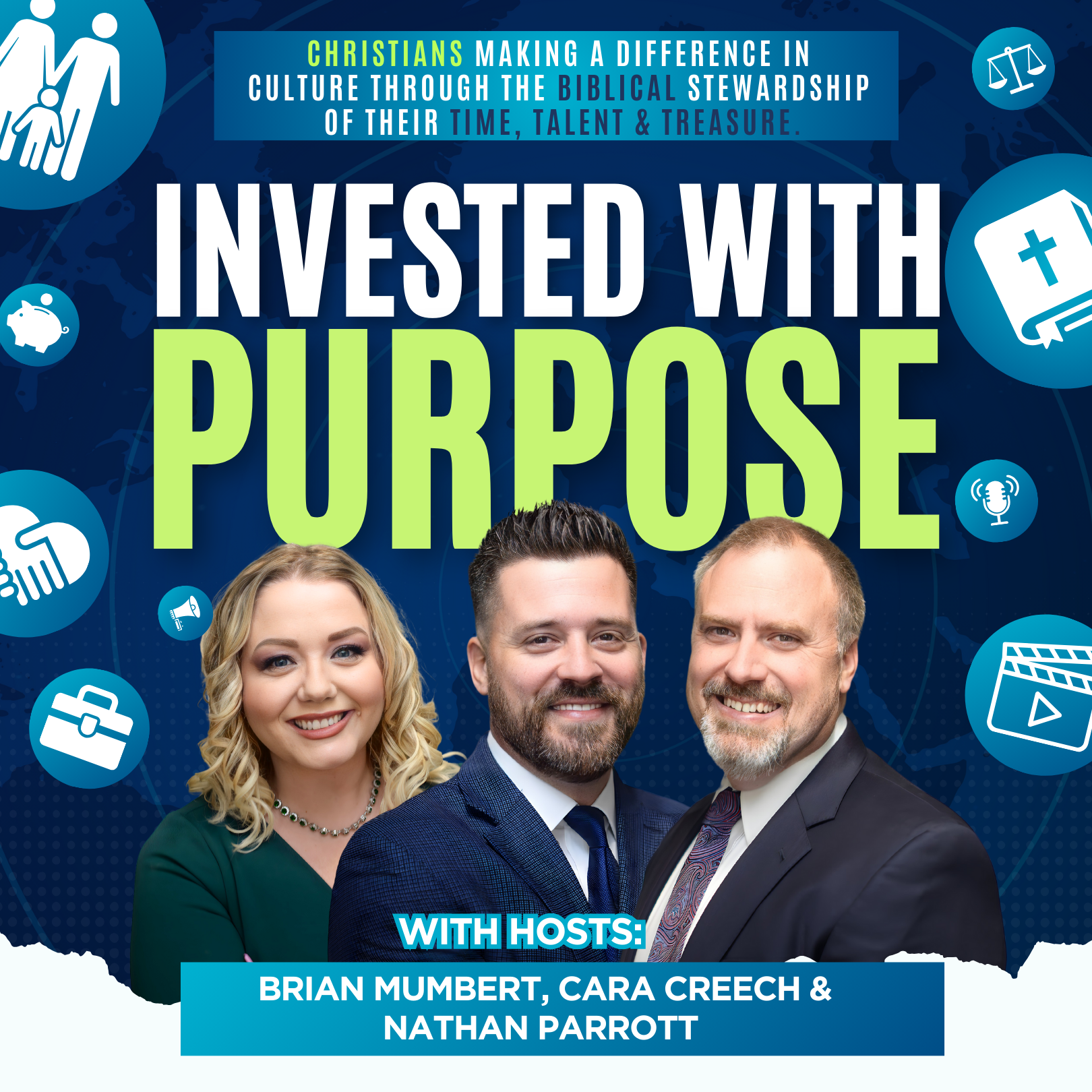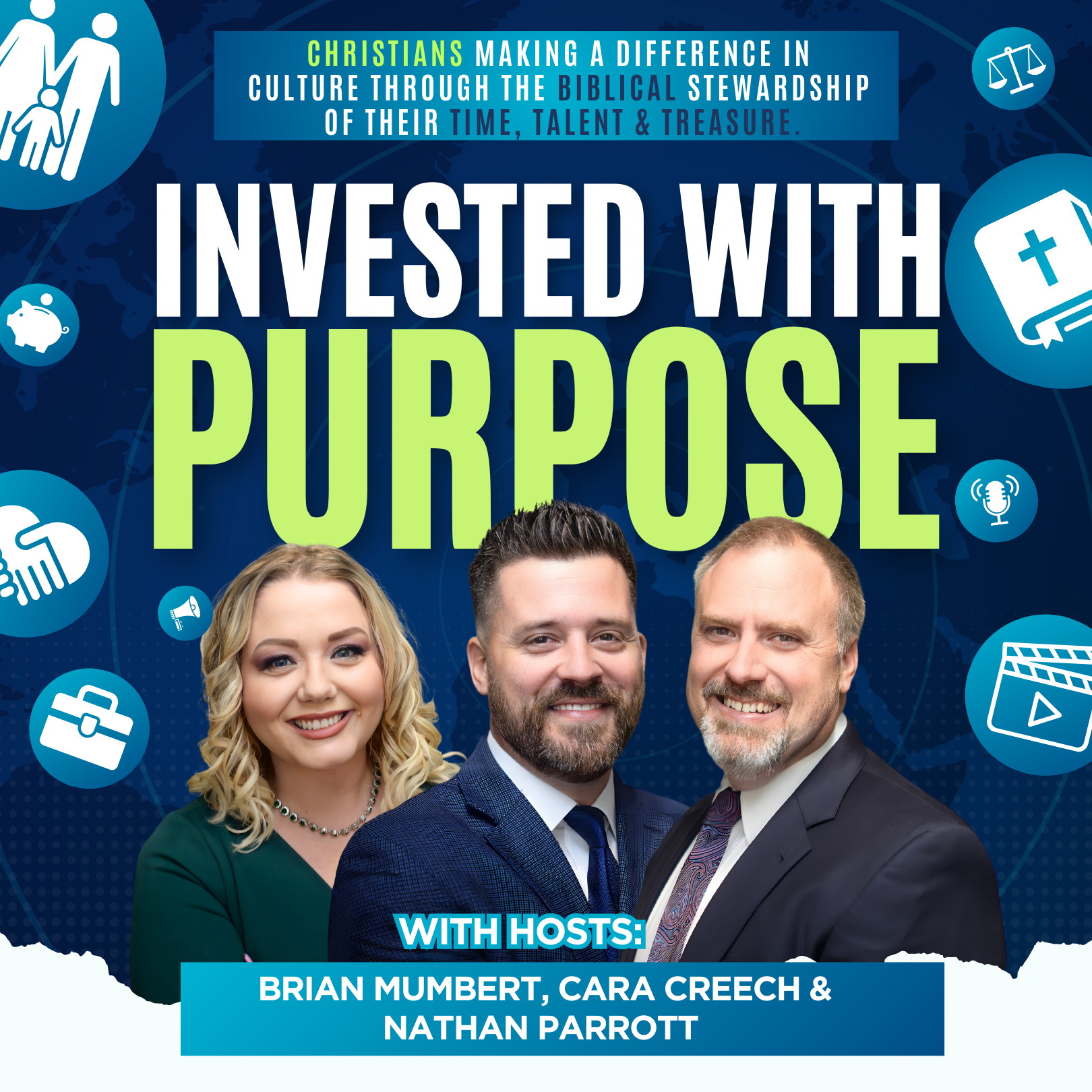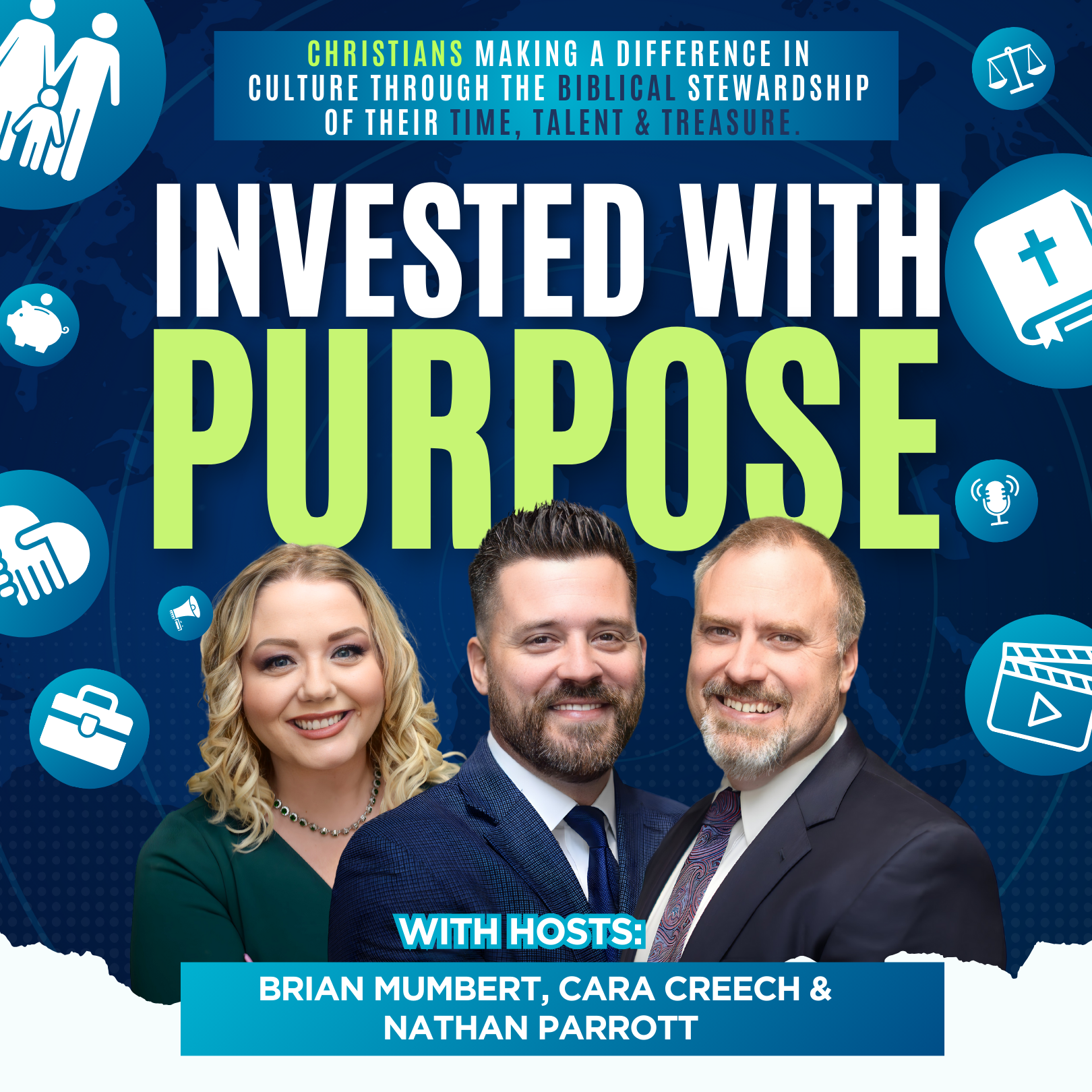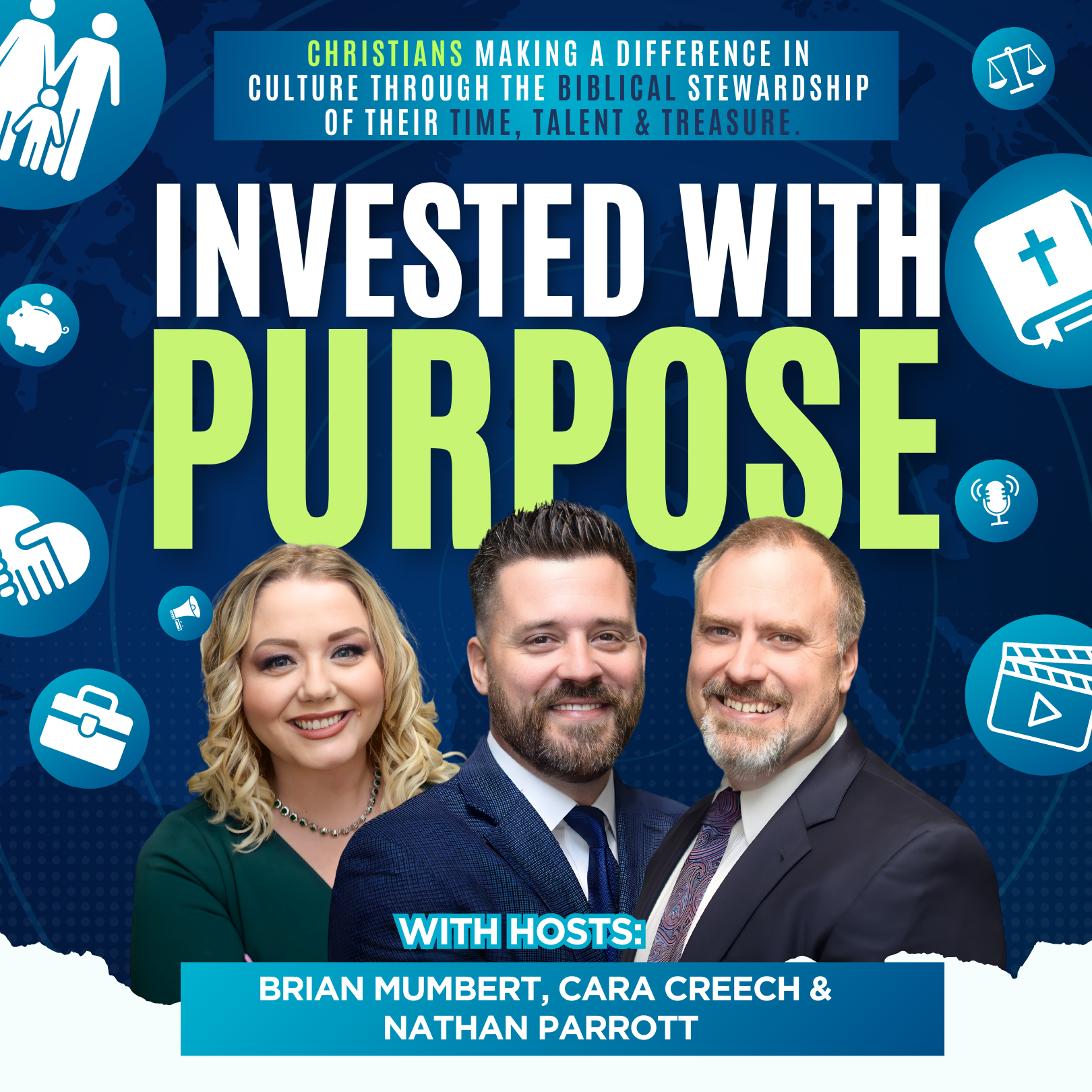Child Protection Initiatives vs. Woke Corporate Agendas with John Stemberger: Episode 5 hosted by Brian & Nathan
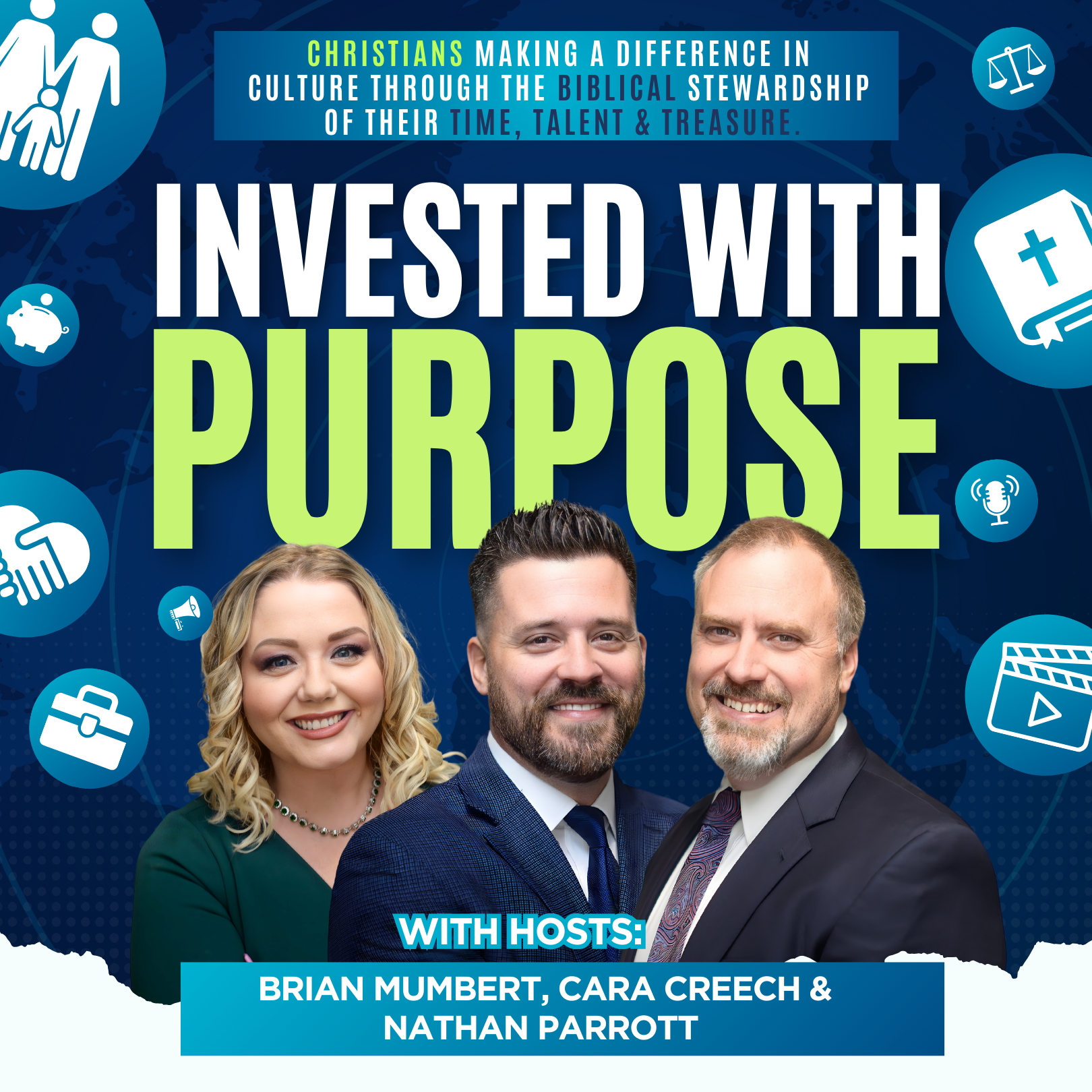

John Stemberger (Founder of Trail Life USA) of The Florida Family Policy Council joins us to give the current state of Pro-life and Child Protection Legislation in Florida as well as a passionate and compelling argument against woke mob mentality and how it is changing the culture in America.
Please remember to subscribe, share and like our content on all the major Social and Listening Platforms such as Apple, Spotify, RSS, Facebook, Instagram and LinkedIn.
Nathan:
Welcome to America, baby. Woke or broke.
Brian:
Woke or broke.
Nathan:
Which one you want?
Brian:
These companies, I tell you, it's like every week I just wait to hear what's going to be new. What's the next company that's going to be something just absolutely ridiculous?
Cara:
What if you step to the left?
Brian:
How far can we go? Somebody's got to take it a step further now because we haven't gone far enough.
Nathan:
I don't know if there's any steps further to go.
Brian:
They're trying.
Nathan:
They're trying.
Brian:
I found this really interesting. I was sitting in my son's doctor's office this morning, and he had the TV on Good Morning America, or whatever. One of those shows. And I saw this commercial for... I think it was Dove soap, and I felt like, "This is a company that did it right." I watched this commercial, and it was really heartfelt. They were showing all different women, and they were doing their moisturizing and stuff with the soap and everything. And none of it was some transgender in your face that's obviously a dude. Anyway, they had this... Oh, it was so sweet. They had this girl with down syndrome. It was so cute. And it felt like everybody got represented, and it was a really nice, heartfelt commercial. And I was like, "Wow. This didn't look like it was pushing an agenda. I mean, congratulations."
Nathan:
That's right.
Brian:
"You figured something out."
Nathan:
I think if everybody could actually be what they are, then we're accomplishing something in America.
Brian:
It's pretty amazing.
Nathan:
But if we want to act like a dog or a cat or a different gender, then we're sending mixed signals to our kids, which isn't good. And we look like fools if you ask me.
Brian:
I know. Well, we're trying hard to look like fools. I think other countries are just looking at us and laughing at us.
Nathan:
I agree.
Brian:
Like, "What are you guys doing?"
Nathan:
I agree with that completely.
Brian:
You were saying earlier that you didn't even know Barbie came out already.
Nathan:
Man, I've got a 19-year-old, a 15-year-old, both girls, and an 11-year-old boy. Now, the 11-year-old boy, I don't think is into Barbie too much.
Brian:
Probably not.
Nathan:
The girls are getting a little old for Barbie. And I have some in my closet, the holiday editions, but I am not hip to the new Barbie movie. Have you seen this movie?
Brian:
Dude, I have boy. He's 13. We're not going to go see Barbie. As much as my wife says maybe she wants to see it, she can go see it with her girlfriends. But I ain't.
Nathan:
So I'm wondering. I've heard this movie has a transgender, I believe.
Brian:
I swear I've heard. I don't really know much about it. I mean, at this day and age, I feel like it's going to be in most movies, and as a parent, it's your job. Your eyes better be open before you go into something like this.
Nathan:
Well, and the scary thing about this is when you think about merchandising a movie like Barbie... So what do we see when we go into a Target or a Walmart or to some store that sells Barbies or Kens? Do we start seeing something different on the shelves today?
Brian:
Well, first of all, we don't go into a Target.
Nathan:
That's right. That is true. That is true.
Brian:
But second of all, yeah, I do wonder. What are they doing?
Nathan:
Classic.
Brian:
I will say, Oppenheimer was the movie that also came out that would appeal to me more. And actually, I've loved Christopher Nolan. I've been a fan of his movies. I think they're all very good movies. And I was wildly frustrated that for some reason this one was rated R. And I thought at first it was going to be like, okay, some additional language, maybe. Obviously, we're talking about the atomic bomb. Colorful language might be appropriate. But here we are, and I find out that it's this prolonged sex scene and there's a lot of nudity. And here I've been telling my son, who's 13, "Yeah, we're going to go see it. We're going to go see it. We're going to go see it," and now, unfortunately, it's probably not going to be one that I can really in good conscious take him to see in the movie theater. So I was a little bit disappointed by that.
Nathan:
Yeah. I think that's happening across all media. It seems like when you turn on Netflix, cable even, we're seeing things that, as children... What is that, 30 years ago?
Brian:
Yeah.
Nathan:
35 years ago, maybe? 40 years ago? We would never see. I mean, if they had a bathing suit on, that was inappropriate. It wouldn't make television. And so, I know my kids watch Netflix and cable, and oftentimes, we are trying to shield them from a lot of these movies that you're speaking about. And unfortunately, there's some great films that just have something that goes a little too far for the average teen or even child to be able to see.
Brian:
I mean, I'll never forget... See, I'm 45, and I was... I'm trying to remember if this was the late '80s or the early '90s. And there was this wildly popular show. It was called NYPD Blue back in the day.
Nathan:
Oh, yeah. I remember.
Brian:
And I remember the big deal it was that this show was on broadcast television, and a dude's butt was going to be shown in this show. And people were flipping out. And this was late '80s, early '90s, somewhere in that timeframe. And you fast forward to today, and it's like dude's butts in every show.
Nathan:
That's absolutely right. And I don't know if you remember MTV back in the day, right?
Brian:
Yeah.
Nathan:
But some racy videos. But that wasn't everything. I remember when Beavis and Butt-Head came out.
Brian:
Beavis and Butt-Head.
Nathan:
And just some of the content. It wasn't nudity or anything. It was just what they were saying was just something we had never heard on television really before, especially in a cartoon, right? And today, that would be standard issue for cable television. Definitely for any of the movie or Hulu, Netflix, and platforms like that. So we're in a different culture, a different time, and I think protecting our kids from this has become more important than ever. And are there any other ways that you... Besides just the TV and the movies?
Brian:
As a parent, you don't have the job anymore. I talk with the folks at Movie Guide, and they have these wildly revealing stats about how much screen time kids had. And whatever screen time you think your kid has, it's probably double or triple that number and you just don't realize it. And you're letting your job as a parent be relegated to the television set that's going to tell them what's right and wrong. And if you do that, well, you know what you're going to get because it's all over everything. You're not safe on Disney+, you're not safe on Netflix, you can put the Kids YouTube on, it doesn't matter. You're not safe on any of it, and you better be doing your job as a parent and making sure that they don't have this stuff in front of them at all times.
Nathan:
Yeah. And there's parental controls to do it. I think a lot of parents just don't know or they're not looking into it. But I will tell you another platform that we have to be worried about is Xbox and PlayStation. And I know my 12-year-old came in the other day and he said, "Dad, I have a lot of friends."
Brian:
Oh, no.
Nathan:
And I said, "Friends? These people that you know from school?" And he said, "Oh, no. These are people I play the game with." Right? Whether it's Fortnite, whether it's some of these other games which I don't always agree with, but sometimes he gets to play. And that is concerning as a parent. I explained to him, "You don't know who these people are, number one. So we shouldn't be talking to them if we don't know who they are." But to monitor that as a parent, it's no longer going to work coming home, your kids play outside and then they come in when the lights go down. Or excuse me, when the sun goes down. You guys eat dinner together, and then go to bed. That is not what America looks like anymore. And so, for parents out there, if you think your kid is playing Xbox or PlayStation and not talking to people with a headset, you have lost your minds. You need to get involved.
Brian:
Yeah. It's a totally different world. Back when I was a kid, my mom knew all my friends because she would invite... She would have me invite them over to our house whenever we did anything, that way she got to... It was so sneaky. She got to know all of my friends. Now, Noah's got all these friends online. Like you just said, "I don't know who these people are. And I don't think you know who these people are." So we cut that right out. You're playing with friends that you know from your school or from church or from somebody... This is a physical person I have to have known.
Nathan:
And I remind my wife that we used to have to call the home and ask to speak to our friend. And it usually was a parent that answered the phone. No longer, ladies and gentlemen, do we have to do that. Everybody has a cell phone. Most likely, your children, by a certain age, maybe even elementary, 5th grade, 4th grade, or above, has a phone. And they can just be contacted by anyone, including their friends. Maybe the friends that you don't want them to hang out with. So any ideas for that?
Brian:
Well, I don't know if I have an idea. You're going to laugh at this one. So my son, the other day, he says, "There's this person that they've got the wrong phone number." Because he just got a phone this year for the first time. He's 13. And he's like, "They're texting me, and I think it's some grandma or something. And she's just got the wrong number. And I've been telling her I am not, whatever's name it was, is. And she's talking about how she's trying to meet her grandson for dinner or something." And I'm like, "Buddy, I hate to tell you this, but it's probably not a grandma."
Nathan:
That's right. That's right.
Brian:
And it's going to lead to a good conversation we're going to have about how spambots have become very good at targeting.
Nathan:
That's right.
Brian:
And they're looking for more than just a good time at dinner.
Nathan:
That's right. Well, I think it's a good conversation to have, especially at that age, right?
Brian:
Yes.
Nathan:
And kids are naïve. Kids are innocent. And unfortunately, we have people preying on that innocence. And hopefully, the guest that we have on today is going to talk a lot about that, in John Stemberger, and in ways that we can get active in our community and in legislation and in the government. And so I'm looking forward to that.
Brian:
Oh, absolutely. I mean, I've known John ever since I started working with Timothy Plan, which has been 17 plus years. And when they say that this guy... He never sleeps, and he's the most important person you don't physically know or have ever met in the state of Florida, they're not kidding. I mean, this guy is relentless, and he is such an advocate for families and parents and Christians and Conservative politicians to actually do what they say they're going to do. I mean, this is the kind of guy you want on your side. I'm glad he's on our side.
Nathan:
Absolutely. Absolutely. Well, I don't think there's anything else to do but get John Stemberger in here, and let's talk to him.
Brian:
Yeah.
Brian:
All right, so joining us today is John Stemberger. He's an AV-rated Orlando attorney, who has been a Conservative policy advocate for over 30 years. In 1992, he was appointed as the political director of the Republican Party of Florida, during the final campaign of former president, George HW Bush.
Stemberger has been quoted in news and media sources 100s of times as an expert on law, policy, culture, and politics, including the New York Times, Wall Street Journal, Time, The Economist, and National Public Radio. A sought after speaker around the country, John Stemberger is also a member of the Council for National Policy, and in a feature article on his work, the Miami Herald called him, "One of the most interesting and influential people you've never heard of."
In 2009, Orlando Magazine named him one of the top 50 most powerful people in Central Florida, and in 2018, Florida Trend Magazine named him one of the top 500 most influential business leaders in Florida. In addition to the private practice of law, in 2004, Stemberger became the president of the Florida Family Policy Council. Since starting the Florida Family Policy Council, he served as chairman of the campaign to amend Florida's constitution to define marriage as the union of one man and one woman, which was adopted by 61.9% of Florida voters in 2008. I remember that well.
Most recently, as an Eagle Scout and former Scout master, John was one of the primary founders, and now the chairman of the board for Trail Life USA, a Christian Scouting movement for boys, which started in 2014 and now has around 30,000 members with 800 troupes, chartered in 48 great states. John, thank you for joining us.
John Stemberger:
Brian, Nathan, it's great to be with you guys.
Brian:
Absolutely. That is quite a prolific history that you have there. But maybe we'll just get to a piece of it. How did you end up taking over and working with the Florida Family Policy Council? Because that's how I knew you.
John Stemberger:
So I was minding my own business as a trial lawyer, making a rather remarkable amount of money, given the fact that we grew up in not wealthy circumstances. And we had just resolved a case, got out of debt, just bought our first house. And folks of the family came to us and said, "Hey, we're going to restart the policy council in Florida." And this is about 20 years ago. "And we'd like for you to do that." So I helped them find half the board and Focus helped find the other half of the board.
And we were doing a national search for the leader of the organization, and everybody kept saying, "Well, maybe you should do this, John." And I made a list of the criteria what we were looking for in a leader, and my board and my secretary and Focus kept saying, "Well, this sounds really like you." And so, at that point it was kind of like Dick Chaney was on the committee to find the vice president, and ended up being the vice president years ago. And so, kind of the same thing is how I got to do this role here, so.
Brian:
Isn't it amazing how that works? You come up with a job description, and then you fit the job description.
John Stemberger:
Yeah.
Brian:
Yeah, I've had that happen too many times. It doesn't work out well. Or, in your case, it works out great because we have you. So how many other states have policy councils? Do you know?
John Stemberger:
Yeah. So we're one of a network of 40 states that have state-based policy councils. We come under the umbrella of a group, called Family Policy Alliance, which I have a leadership role in, helping to guide. And yeah, so it's a great group. We originally birthed by Dr. Dobson and Focus on the Family, back in the day. But we're now a separate entity that still exist, but we certainly recognize Focus and Dr. Dobson as the founder of our movement, so.
Brian:
Dr. Dobson basically raised me as a third parent. My parents followed so much of what he did, I think it helped me turn out okay. So I think it works. So I have high reverence for Dr. Dobson. So I wanted to ask you, now that we found out what got you into this... It's captivating. I was reading the bio before we started, and it talks about one of these... I can't remember exactly what it said, but it was something about one of the most interesting people that you've never heard of, or something to that effect. And I describe you to people like that all the time because I've met you over the years through these policy council dinners and, of course, in circles with our alley. And it's like, I say the name, and everyone's like, "Who's John Stemberger?" And I'm like, "He's the most important guy you've never heard of." All that he is in Florida. But tell us, what is it that you do that is... It's behind the scenes, but it's just so important. What is this policy council? What do you do?
John Stemberger:
We're looking to affect policy, elections, judges, culture, pastors, working. In some ways, we have a high profile, but we try to stay under the radar at the same time. I know that sounds contradictory, but we're not looking to get publicity, unless it furthers the cause in helping to be a voice in the culture for an issue or something. But we're very involved with the legislative process in trying to pass laws that are protecting families and children. Protecting children is a really big deal right now. Our opponents in this culture are trying to go after our kids' minds and hearts. They're trying to go after their bodies in some cases. And so, both born and unborn, we're trying to protect children in the womb, outside the womb, from the State, which is seeking to be an aggressor to them.
So the legislature is a big part that we do. We try to mobilize in elections, we'd do [inaudible 00:05:48] guides. We're very involved with judicial selection state-wide in all judge races. We've been involved with helping the governor advise him on various Supreme Court picks and for the Supreme Court. Yeah. And then, we're also engaged in cultural issues. We created a Christian scouting movement, called Trail Life USA, which now has about 1,000 troupes in all 50 states. About 50,000 members. So we've been involved with several other things as well. [inaudible 00:06:17], publishing a book, called Legacy of Life, which is the honoring 50 of the greatest pro-life leaders of the last 50 years. And so, we've done a lot of different kinds of projects, but our main focus is the policy here in Florida.
Brian:
Excellent, excellent work. And I see so many parallels in what Timothy Plan does and what you do, even though they work in different areas where we're working necessarily more in the stock market and companies, and you're more working for policy and government. But as you just mentioned, this world that we're in right now, we have these companies that are just... They're ready to jump off a cliff to alienate half their fan base or their consumer to make some kind of strange point and score some ESG score in some way or fashion. And on the other end, you're doing lobbying on the government side of things. How is it that you're effecting change on your side, we'll ask?
John Stemberger:
Well, I do think that overall, we have to look at institutions. Our whole movement is examining the areas of banking, insurance, and CRMs, contact resource management systems, for technology. In all three of those areas, we've had instances where companies have basically pushed us away and said, "We don't agree with you." And we had six of our groups... Actually, years ago, all of us went into bed with Convio and Salesforce in terms of having a contact management system. And the whole creative department there just said, "We're not going to work with these guys." And they threatened to leave the entire company. So they breached their contract with all of our states. We went into litigation and had a settlement as a result of that.
On top of that, we've had Wells Fargo Bank tell some of our members, "You know what? We're not going to do business with you because we don't like what you believe." And so, as a result of that, our chairman of our board, Bennet Brown, who's been the president of several banks, just started All Glory Bank out of Oklahoma. And All Glory is now nation-wide bank, and they've got more applications than they can even process. It's online. Mostly there's brick and mortar in Oklahoma, but this is a quality bank that's not going to discriminate based upon what you believe.
And so we're doing this in the area of insurance as well. And in these technology areas, we're trying to create institutions that can sustain organizations like ours and others around the country without being discriminated against. Rod Dreher just wrote a book, called Live not by Lies. And he's basically saying, "Look, the culture's becoming so hostile, you're not going to see prosecution like we've seen it in Third World countries, but we're going to see the denial of opportunity." And we're seeing that in universities or institutions. The military are pushing people who are Christians out, pushing people that have conservative values out of the marketplace.
Brian:
It's incredible to think that we could come this far. I mean, you go back to 2008... because I'm a native Floridian, and I remember well the marriage amendment that was on the ballot. You were such a huge part of even getting that there and then getting the votes to get it passed, which in Florida, is a tall order. You have to cross over more than just 50%. And so, that easily passed in 2008 with all of your hard work, and yet, here we are in 2023, and everything's undone. It seems crazy. So Timothy Plan, we engage with companies that will not invest in certain companies for what they do. How would you recommend someone get involved on a more political side of things in what you're doing? How can people get involved that way?
John Stemberger:
Yeah. So folks can go on a website. If you're in Florida, flfamily.org, flfamily.org. There's a whole list of all of our movement states, if you're outside of Florida, at familypolicyalliance.org. Familypolicyalliance.org has a list of all of our organizations, nation-wide. Folks can get involved in a number of ways, and we have a big day at the Capital, where we bring about two to 300 people to show them exactly how law is made, lobbying on the issues, and they have an audience with a Supreme Court justice. So it's just a great time to be able to understand the process face to face. And that's what we'd recommend, is to get involved and get engaged so you can see the process.
Brian:
And how can we as just individuals get involved? It feels so, write your congressman, call your congressman. Is that doing the job? Can we do more? Can we help do more somehow?
John Stemberger:
Yeah. You'd be surprised. If a legislator gets 10 people in their district, that are legally voting for them and could possibly run against them, to call in on an issue, that's a really big deal. And they make note of that.
Brian:
Oh, wow.
John Stemberger:
Now, just last thing. Generic emails from all over the country or from outside the district. But if you have a targeted focus effort, that's a really big deal to a congressman or to a state legislator. So those calls and letters and emails do make a difference.
Nathan:
John, I got a question as a parent. I know we are in this culture war, and we see companies that are constantly pushing the agenda, but also colleges, public schools. And for parents that can not afford maybe a private school, or definitely for these children that are going to universities, how do we navigate this as a parent for children? What is your opinion on that?
John Stemberger:
Well, I think the first question is... We have to ask ourselves, is college really appropriate for every child? And the answer is, no, it's not. I mean, we had that... for those of us that had been to college, it's kind of a default. We want our child to go to college, but that's not necessarily the right thing for everybody. You can make a pretty good living as a plumber or as a person that does drywall contracting. There's a lot of professions that don't require a college education that are just labor-intensive and skill-based that you could make a pretty good living at. So I think that that's one thing we need to do, start with that.
Secondly, yeah, a lot of the colleges, and sadly, even Christian colleges, are just... They're pumping out a lot of garbage and lies to our children. So we have to be discerning. Here we are as a parent, trying to build in and block out stuff. Build in the good stuff, block out the bad stuff our entire kid's lives, and then we're turning them over to a secondary university that's going to eat them alive. So we have to prepare those young people, prepare their hearts and minds to be confronted with the bad ideas and the lies of the culture. And when they do, we send our kids to Summit Ministries in Colorado Springs. It's a 14-day worldview training. So they're able to understand and hear these things from the classroom. They can say, "Okay, I understand what that means, and I understand why that's not true."
Otherwise, what we saw in God's not Dead, where the professor's going after that young Christian and student, that's reality. I mean, they're really trying to break our children down and try to help them to deconstruct everything we've helped them to believe. So we have to be discerning about where you send your children to college.
Nathan:
Absolutely.
Brian:
Yeah. It's become more apparent than ever. I have the privilege, at least I can send my son to a private school. And we've made the sacrifice to do so because it's so important, like you said, to bring in the good and block out the bad as best as possible as parents, while you're shepherding them through their early and most influential years. And we see this. It's constantly getting pushed in every direction. I know you're a family man as well. How do you navigate all this in your own family?
John Stemberger:
Yeah, so that's a great question. First of all, all you can do is what you can do. You hold your children with an open hand. You try to do the best you can to build in the good stuff, block out the bad stuff. There's no guarantee for parents that they're children are going to come out amazing all the time. Sometimes, I think my children are going to be Pulitzer Prize winners, and then other times, I think they may end up in a federal penitentiary.
But yeah, no, I'm just joking. But there's ups and downs to all this. But we try to, in as much as we can, train them in the way that they will go, and try to raise them and show them values and teach them right from wrong. We've chosen to homeschool our kids. Not everyone can do that. And again, we're trying to protect them from just the twisted ideas of the world and the lies of the world, until they're ready to think on their own two feet.
Brian:
Absolutely. I mean, it's our job as parents to definitely steer them in the right direction. And if we're going to let the world and the entertainment of the world do that for us, we're abdicating our responsibility, for sure. I wanted-
John Stemberger:
And at the same time we're trying to protect them, we expose our kids to the bad things. We want them to understand first, before the world gets to them, the perversion that's out there and God's design for marriage and family and the human experience. We want them to see those things. A lot of parents would say, "Oh, no. I don't want to talk about those things. Let's just protect them." Well, what's going to happen is the world gets them first. For the first time, you're hearing about transgenders and whatever it is, right?
Nathan:
Right.
John Stemberger:
And so, they don't have a perspective to guard themselves and think about it clearly.
Brian:
That's so true. I mean, you can shield them to a point that they don't even... The first time they see it, they might not understand what's the big deal. You haven't really had the conversation as to why it's a big deal. So that's awesome. Before we stopped, I wanted to talk a little bit about the Trail Life thing. Again, growing up here, I remember when this whole thing went down where Boy Scouts, they softened their stance, they started letting gay leaders into the organization. And now, we have a situation, of course, where they're with kids, and this just all happened in rapid succession. And you had the courage to stand up and say, "I'm done with this. I'm leaving the Scouts. I'm going to start Trail Life." And now, that has blossomed into, as we talked about earlier, it's all over the country. What was that experience like to do that?
John Stemberger:
Yeah, it was very daunting. I mean, I love the Boy Scouts. It's just so meaningful to me as a young man growing up. And to think about opposing this organization publicly was very hard to get my head around initially. But ultimately, we had to understand that truth is far more valuable than tradition. And we had to basically just confront this thing, even though it was one of the most beloved institutions in the world, not to mention in American history. You think about Norman Rockwell and camping and all the good things that scouting is. And at best, they become woke now. The entire institution, they're promoting global warming, they promote horrible diversity issues that's just inappropriate for children. They've infused sex and politics in scouting by doing this. And so, it's just really perverted the entire organization.
It's not safe anymore. I mean, openly gay boys can tent with other boys. They don't try to identify them or set them apart in any way so they discriminate against them. Basic Youth Protection Policy, we don't tent boys and girls together. Why? Because they're attracted to each other, right? Well, if you have a boy with a same-sex attraction, and we're saying, "Yeah, let's just let them sleep with any other boy he wants to," you're asking for disaster. And the scouting, they already have literally hundreds of thousands of sexual abuse claims. So they're pouring kerosene on an open flame when they do all this.
And it's all because, Brian and Nathan, because they just lack the courage to say, "No. We're going to protect our boys, even if it's politically incorrect." So they're allowing the culture. And we've seen this happen with many corporations. They've allowed the board of directors to get filtrated. Not by veteran scouters, who grew up in the movement and understand what it means to be a man and all that, but they started getting woke CEOs from big corporations who were giving them money and the pressure from the culture all... they didn't want to be on the outside of what was considered the mainstream of America. And so, they conformed and they caved to some of the cores, values that we should have in a boys' organization.
Brian:
It's incredible, the parallels you can see from something like that to where we are in corporate America where now you see boards and leaders of companies that are folding to cultural issues that even 5 to 10 years ago would've been not even thought of. And here we are now, where everyone seems to be folding and coalescing around things that they think are the right thing to do. Because culture and population and leadership and government is telling them it's the right thing to do. And they're not using the common sense that they had just 10 years ago when it wasn't the right thing to do. It's pretty remarkable.
So I wanted to close, again, by asking you... Tell us where we can get involved. I mean, Florida, especially... Of course, if you're in Florida, of course support this organization. But other policy councils around the country as well, and how we as the public can get involved in helping you all to get better legislation to our leaders and better justices on our supreme court and just better leaders in general.
John Stemberger:
Yeah. So familypolicyalliance.org. Familypolicyalliance.org is the national organization. And look under Allies, and you'll be able to find the whole list of 40 state-based organizations like ours around the country. And get on the mailing list, go to their events, introduce yourself, make a contribution. Those are the kind of things that can be done to really connect and to take you to the next level, where you're not just a voting citizen, you're an active citizen really making a difference.
Brian:
That's definitely the key, to be an active citizen, for sure. Because I'm personally, I'm sure Nathan is too, we're very much voting citizens. But I can only do so much with my vote. I need to be a little bit more active in everything that I do because politicians, like you said, they listen. Which is amazing to me, as they listen to a letter or a phone call, but they listen. So thank you, John, for joining us today. We really appreciate your perspective and the culture and everything that's going on, both in the state of Florida and just around the world with all these policy councils. So thank you again. There's so much pressure now to know.







